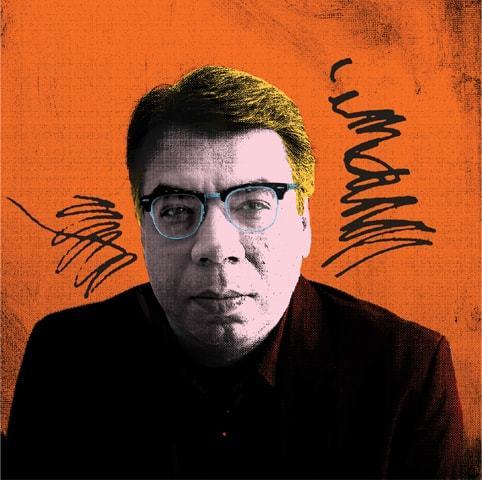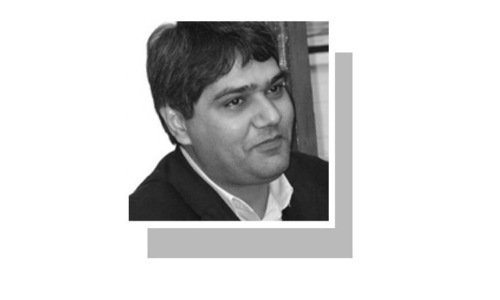
The assassination of the controversial major general of Iran’s Islamic Revolutionary Guard, Qassem Soleimani, by the equally controversial government of US President Donald Trump, has put Pakistan into a spin.
A minister in PM Imran Khan’s government announced that Pakistan would side with Saudi Arabia, the oil-rich kingdom that is a firm American ally and strongly opposed to Iran.
However, the spokesperson of the Pakistan military’s Inter-Services Public Relations wing and then Foreign Minister Shah Mehmood Qureshi were quick to announce that Pakistan would remain neutral in case hostilities intensify between Iran and the US.
Pakistan was a frontline proxy state in the US and Saudi-funded ‘Islamist’ insurgency against Soviet troops in Afghanistan in the 1980s. By the time Soviet troops left Afghanistan in the late 1980s, the fallout of that war greatly impacted Pakistan, deepening sectarian fissures in the country and aiding the mushrooming of religious militancy and extremism, that eventually mutated and turned anti-state.
Indeed, this must be on the minds of the state and government of Pakistan for them to declare their neutrality. But there is a lot more to Pakistan’s ambiguity in this context. And I use the word ambiguity because relations between Iran and Pakistan have largely remained abstruse, especially in the last 40 years or so. Rand Corporation’s 2014 reader Iran’s Influence in Afghanistan describes the relationship between Pakistan and Iran as ‘a complex mix of cooperation and peer rivalry’.
Since 1981, Pakistan’s relations with Iran have remained tense and enigmatic, in contrast to their earlier unqualified warmth. Yet not once have the two countries come close to fighting a war
Iran is a Shia Muslim-majority country headed by a powerful Shia clergy, which came to power through a revolution in 1979. According to Andreas Rieck’s 2016 book The Shias of Pakistan: An Assertive and Beleaguered Minority, Pakistan has a significant Shia minority. Estimates from 2018 suggest 20 to 25 percent of Pakistan’s population is Shia. And according to Jacquelyn K. Davis, in Anticipating a Nuclear Iran, many of the Pakistani Shia support Iran’s post-1979 political and ideological set-up.
Until the mid-1970s, Pakistan enjoyed a seamless relationship with Iran. In fact, Pakistan was closer to Iran than it was to Saudi Arabia. Iran, a modern pro-US monarchy, was one of the first countries to recognise Pakistan when it was formed in August 1947. Also, the Shah of Iran became the first major foreign head of state to visit Pakistan in 1950.

During the 1965 Pakistan-India war, when the US had suspended all military aid to both India and Pakistan, Iran sent nurses, medical supplies and 5,000 tons of petroleum to Pakistan. As an oil-rich country, Iran also threatened to impose an embargo on oil supplies to India.
In the 2015 edition of the journal International Affairs and Global Strategy, M. Saqib Khan writes that, to sidestep the US and European arms embargo imposed on India and Pakistan during the war, Iran bought 90 Sabre fighter jets from West Germany and sent them to Pakistan.
Iran saw Pakistan as a modern extension of Persian culture in South Asia because of the role this culture and language had played during Muslim rule in India between the 13th and 19th centuries. But since the Shah’s Iran was known as ‘America’s policeman in Asia’, it also tried to insulate Pakistan from the left-leaning ‘Third-Worldism’ — an idea first formulated by the charismatic Arab nationalist leader Gamal Abdel Nasser of Egypt and the ‘socialist’ Indian PM Jawaharlal Nehru. Iran made sure that Pakistan remained firmly in the American orbit during the Cold War.
The state of Pakistan admired Iran’s economic and social modernity and tried to emulate it. In his essay, “Pakistan As A Factor in Indo-Iranian Relations”, for the December 1974 issue of The Indian Journal of Political Science, L.K. Choudhary wrote that, during the 1971 Pakistan-India war, Iran again sidestepped an arms embargo on Pakistan and supplied it with military equipment. The Times of India quoted the Shah as saying, “Pakistan and Iran are like one soul in two bodies.”
In 1973, when a Baloch insurgency broke out in Balochistan, which shares a border with Iran, the Shah provided lethal American-made combat helicopters to Pakistan so that Baloch insurgents operating in the remote areas near the border could be eliminated. This way Iran also eliminated the threat of the insurgency spilling into Iran’s Baloch-majority areas.
Relations between the two countries began to somewhat recede when the populist government of Z.A. Bhutto in Pakistan attempted to formulate an international ‘Muslim bloc’ in 1974. The planned bloc also included ‘enemies’ of the Shah, especially ‘radical’ Soviet-backed Arab regimes, such as Libya, Iraq, Syria, Algeria and the erstwhile South Yemen. Therefore, the Shah was the only major Muslim head of state to decline attending the 1974 Islamic Summit in Lahore, organised by the Bhutto government.
In 1977, the Bhutto regime was toppled in a reactionary military coup by Gen Ziaul Haq. So when the Shah’s regime fell in 1979, and was replaced by a radical theocracy, Pakistan became the first country to recognise the new government. But the refreshed relations between the two countries, on the basis of Islam, soon began to nosedive from 1981 onwards.
From the mid-1970s, Saudi Arabia, buoyed by increasing oil prices, had begun to aggressively expand its circle of influence with the power of the so-called ‘petrodollar’. It also started to outpace Iran in matters of providing economic aid to Pakistan, which came with the condition of adopting the Arab culture and faith as prescribed by Saudi Arabia.
Iran’s Shia theocracy began to be seen as a threat by the puritanical Saudi political and religious establishment — especially when Iran initiated the rather unabashed export of its version of anti-Saudi and anti-US ‘political Islam’ to other Muslim countries.
In the 1980s, Pakistan accepted hefty financial and military aid from the US and Saudi Arabia during the anti-Soviet insurgency in Afghanistan. This money was also used to form radical Sunni indoctrination outlets and militant outfits to supplement Afghan militant groups. But many such outfits eventually turned anti-Shia and thus anti-Iran. This saw Iran bankroll militant Shia groups within Pakistan. The result was deadly violence, clashes and riots between Saudi and Iranian proxies in Pakistan.
Even though Pakistan declared neutrality during the Iran-Iraq war in the 1980s, the Zia regime increasingly galvanised Pakistan towards the Saudi and American orbit. Pakistan sent 40,000 soldiers to Saudi Arabia in case the conflict spread to the kingdom. A cultural consequence of this was the ‘Saudization’ of Pakistan and the steady erosion of Persian culture; after the 1979 revolution in Iran, it began being seen as ‘Shia culture’.
Ever since 1981, Pakistan’s relations with Iran have remained tense and enigmatic. Iran has often accused Pakistan of backing radical anti-Iran Sunni groups operating near the Pak-Iran border, and Pakistan has expressed concern that anti-Pakistan groups backed by India have been allowed by Iran to operate near the same border.
Yet, not once have the two countries come close to fighting a war against each other. Soleimani was understood by Islamabad as being an ‘anti-Pakistan hawk.’ Pakistan, having frenzied borders with India and Afghanistan, and only recently managing to vanquish the extreme consequences of its participation in the anti-Soviet Afghan insurgency, has wisely decided to declare neutrality in the US-Iran conflict. More so, it has downplayed the fact that Soleimani was no hero to Pakistan.
Published in Dawn, EOS, January 12th, 2020
















































